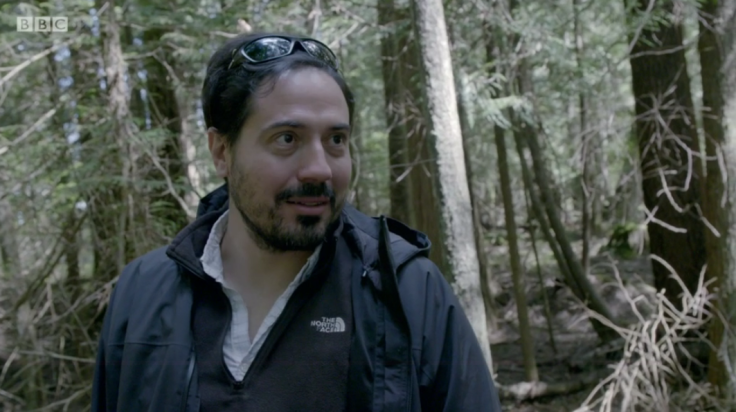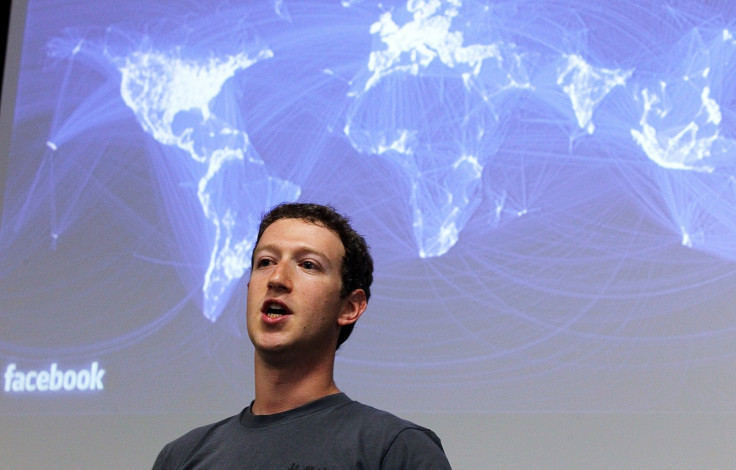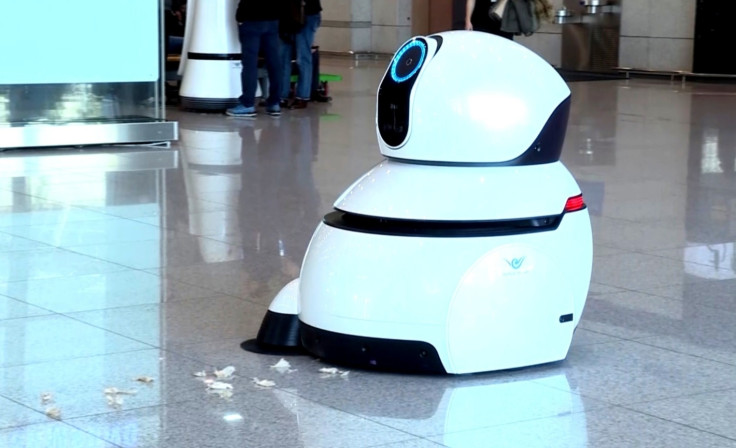Will technology cause society to collapse in 30 years? This former Facebook exec says yes
Antonio Martinez was interviewed in a tepee after brandishing a machine gun.

With smartphones in our hands and self-driving cars sitting in our driveways, the human race will spiral into revolt, despair and conflict as artificial intelligence (AI) and robot technology completely destroy the job markets. These are the predictions ofa former Silicon Valley executive.
Antonio García Martinez, a former product manager at social giant Facebook, left his position in 2015 and now lives in a remote part of the US as a self-described recluse. He traded in his computers for a tepee, a compost toilet and some assault rifles.
His life was highlighted in the BBC's Secrets of Silicon Valley documentary, which aired on Sunday 6 August.
Martinez had some warnings for the general public – or "normies" – saying that within 30 years disruptive technology will impact upon employment.
He said: "Every time I meet someone from outside Silicon Valley – a normie – I can think of 10 companies that are working madly to put that person out of a job.
"If the world really does end, there aren't going to be many places to run. Within 30 years, half of humanity won't have a job. It could get ugly. There could be a revolution. I've seen what the world will look like in five to 10 years.
"You may not believe it but it's coming, and it's coming in the form of a self-driving truck that's going to run over the economy.
"There are 300 million guns in this country, one for every man, woman and child, and they're mostly in the hands of those who are getting economically displaced. There could be a revolt."
Martinez said that "not enough" technologists were speaking out to warn the public.
He added: "You don't realise it but we're in a race between technology and politics, and technologists are winning. They're way ahead. They will destroy jobs and disrupt economies way before we even react to them and we really should be thinking is about that."
The host of the documentary, Jamie Bartlett of the Centre for the Analysis of Social Media, wrote on Mashable: "Thanks to Blade Runner, Terminator, Ex Machina and the rest, 'artificial intelligence' is now synonymous with sentient robots taking our jobs, our women, or our lives. Forget all that.
"The AI revolution comes in the less sexy form of machine learning algorithms, which essentially means giving a machine lots of examples from which it can learn how to mimic human behaviour.
"It relies on data to improve, which creates a powerful feedback loop: more data fed in makes it smarter, which allows it to make more sense of any new data, which makes it smarter, and on and on and on. There will be a few lucrative tech jobs at the top of the market, but many of the middling jobs – trucking, manufacturing – will wither away."

Martinez is far from the only Silicon Valley figure to warn about how humanity's future could be impacted by the rapid advance of technology.
Back in July, SpaceX and Tesla chief Elon Musk voiced concerns that the very "existence of civilisation" could be at risk. "I have exposure to the most cutting edge AI, and I think people should be really concerned," Musk warned at the time in the headline-grabbing quote.
But not everyone was convinced, with others seeking to dispel notions of a dystopian future. Mark Zuckerberg, the head of Facebook, slammed his peers in a live-streamed video on 23 July. He said it was "irresponsible" for unfounded predictions about AI to be made without evidence.
"With AI especially, I am really optimistic," Zuckerberg said during the casual recording. "And I think people who are naysayers and try to drum up these doomsday scenarios, I just, I don't understand it. It's really negative and in some ways I actually think it is pretty irresponsible."

Only two days later, Musk hit back via Twitter. "I've talked to Mark about this," he wrote. "His understanding of the subject is limited."
The biggest unknown is the impact that automation will have on society – but some of the more level-headed experts have said that the effects won't be as nightmarish as many predict. In March 2017, a report from PWC found that in some cases "the nature of jobs will change rather than disappear".
John Hawksworth, a chief economist at PwC, said: "Just because it is technically feasible to replace a human worker with a robot, doesn't mean it's economically attractive to do so.
"Levels of automation will depend on the relative cost and productivity of robots compared to human workers in carrying out different types of tasks.
"We expect this balance to shift in favour of robots over time, but there should still be many areas where humans retain a comparative advantage."
However Jeremy Howard, a specialist in deep learning, told the BBC: "People aren't scared enough. They're saying 'don't worry about it, there will always be more jobs'.
"It's founded on this purely historical thing of there has been a revolution before, it was called the Industrial Revolution, and after it there were still enough jobs, therefore this new, totally different, totally unrelated revolution will also have enough jobs.
"It's a ludicrously short-sighted, meaningless argument that incredibly smart people are making."
© Copyright IBTimes 2025. All rights reserved.






















